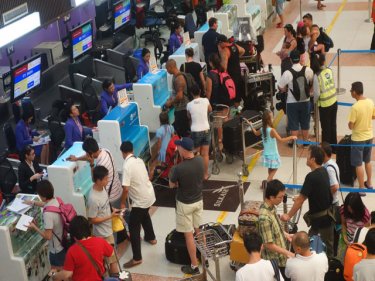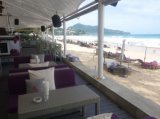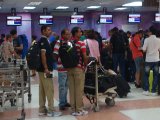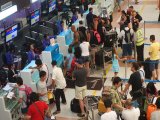''The number of tourists visiting from China could drop next month by as much as 40 percent,'' said Tan Sikeng, of the Thai Hotels Association (Southern branch) committee. ''Group tours will be affected a lot.''
Banning zero-baht tours where operators rely on commissions to make their profit, the new laws have already driven change as operators scrounge last-minute margins.
Prices of tour packages are rising 20-30 percent on average, and as high as 50 percent at agencies heavily dependent on kickbacks.
One Shanghai resident complained that she booked a 19,200-yuan November tour to Phuket in July and then was asked to pay more in late August, reported the eastday.com site.
She refused, citing the terms of the travel contract, and complained to the Shanghai Tourism Quality Supervision Center.
The focus on the kickbacks and rebates that are now to be banned will also shine new light on the kickback commission business on Phuket and in Thailand.
Tuk-tuk and taxi drivers are among those who collect commission by ripping off tourists. The visitors often don't know they are being forced to pay extra.
Just before the Department of Special Investigation team arrived on Phuket last month, tuk-tuk drivers in the Kata-Karon region were moving to monopolise commissions from tour operators.
The payment of the commissions inevitably makes Phuket less competitive and poses a threat to the island's long-term future as a popular tourist destination.
Having fewer Chinese tourists on Phuket may not be such a bad thing, says resort owner and magazine publisher Bhumikit Raktemga.
''We don't want Phuket tourism entirely depending on Chinese,'' he said. ''One day when the Government of China decides to switch off Phuket, it could all be gone.''
Diversity is certainly important.
Many Chinese prefer to travel in groups overseas because of the difficulties of language and the trouble arranging transport, hotels, restaurants and scenic destinations on their own, says eastday.com.
''All too often, the trip of their dreams becomes a nightmare. Some tours steer customers to overpriced shops paying kickback or coerce tourists to pay for extra activities.
''Some travel agencies lure customers with below-cost tour prices, then make up the difference by forcing tourists to purchase goods or tip agents during the trip.
''In other cases, agencies fleece customers by promising four or five-star hotels, then dumping them in dingier accommodation.''
Qin Jian, the Chinese Consul-General who oversees Phuket, says Chinese tourists often complain about the way packaged tours lock them in and don't allow them to go where they wish to go.
''If you pay an unrealistically small amount for a holiday, what do you expect?'' he said today. ''Back in China, people complain bitterly about these kinds of trips. This is why the new law is coming.''
He said that group tours to Phuket and Thailand would be ''affected a lot,'' but would not speculate about a possible drop in tourist numbers.
''From October,'' he said, ''it will be all about rebuilding the confidence of customers. ''Tour operators must change their approach. Commission kickbacks are a rip-off.''
Just how much of a change will be seen on Phuket and at what speed has yet to be determined. However, the introduction of the law should increase the number of Chinese tourists that Phuket actually wants.
More people may be willing to strike out on their own by planning individual trips. Liu Xin, deputy general manager of the Shanghai China CYTS Outbound Travel Service Co, told eastday.com that agencies are moving toward packages designed for wealthy young families.
Prices of tour packages are going up an average of 20-30 percent, Liu said. From October, the effects should be felt on Phuket. But the outcomes remain uncertain.
''It [the law] wasn't well researched and it's not very down-to-earth,'' Hou Zhigang, associate professor of tourism at Fudan University, told eastday.com. ''I wonder whether it will play a serious role in regulating the market.''

















As we have all seen in the airports (follow the flag), Chinese tourists are easily led, hence are a soft target. Sounds as though that is going to change for the better (their benefit).
It has been reported that due to airport congestion, they get the short straw with flight arrival & departure times in the small hours of the morning.
As also reported that they only come for average 5-6 days, then their effective holiday must only be 4 days. Not much fun.
At least the 200 baht surcharge they used to have to pay immigration for arriving at such antisocial times has been stopped.
Posted by Logic on September 17, 2013 13:19